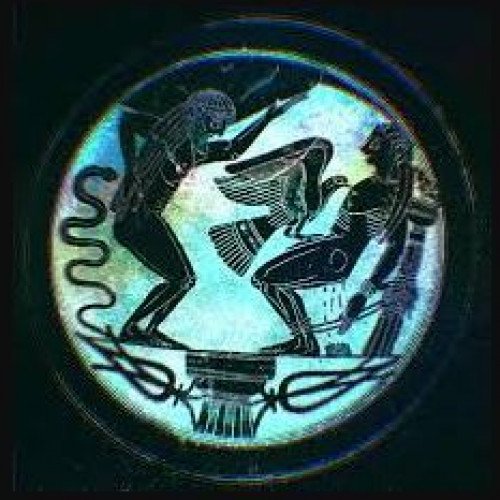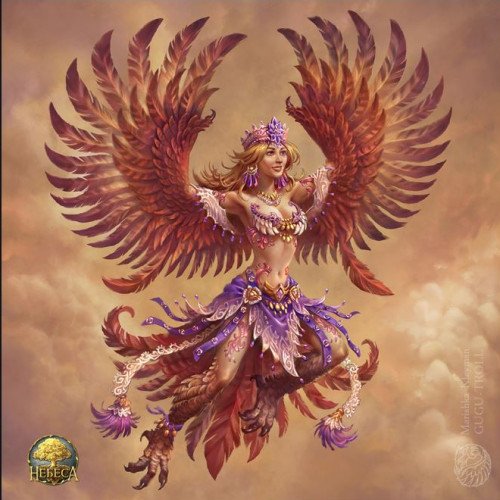Aethon VS Alkonost

Aethon
The ancient Greek word aithôn means "burning", "blazing" or "shining." Less strictly, it can denote the colour red-brown, or "tawny." It is an epithet sometimes applied to animals such as horses at Hom. Il. 2.839 ; oxen at Od.18.372; and an eagle at Il. 15.690 (cf. Hyginus' calling the eagle that tormented Prometheus an aethonem aquilam at Fabulae 31.5.). The eagle who tormented Prometheus, Aethon, was the child of the monsters Typhon and Echidna. In English, aithôn may be written Aethon, Aithon or Ethon. In Greek and Roman mythology there are a number of characters known as Aethon. Most are horses, variously belonging to: Helios Ares Hector Pallas Hades (Claudian)The name is twice applied to humans. In Odyssey 19.183, it is the pseudonym a disguised Odysseus assumes during his interview with Penelope upon his return to Ithaca. According to fr. 43a.5 of Hesiod's Catalogue of Women, Erysichthon of Thessaly was also known as Aethon due to the "burning" hunger (aithôn limos) he was made to endure by Demeter.
Statistics for this Xoptio

Alkonost
The Alkonost is, according to Russian mythos and folklore, a woman-headed bird. It makes amazingly beautiful sounds, and those who hear these sounds forget everything they know and want nothing more ever again. She lives in the underworld with her counterpart, the Sirin. The Alkonost lays her eggs on a beach and then rolls them into the sea. When the Alkonost's eggs hatch, a thunderstorm sets in and the sea becomes so rough that it becomes impossible to traverse. She is also the sister of other birds from Slavic mythology, such as Rarog and Stratim.According to folk tales, at the morning of the Apple Feast of the Saviour day, Sirin flies into the apple orchard and cries sadly. In the afternoon, the Alkonost flies to this place, beginning to rejoice and laugh. Alkonost brushes dew from her wings, granting healing powers to all fruits on the tree she is sitting on.The name of the Alkonost came from a Greek demigoddess whose name was Alcyone. In Greek mythology, Alcyone was transformed by the gods into a kingfisher.Alkonost is more likely an individual character, as was noted in some legends about this bird.